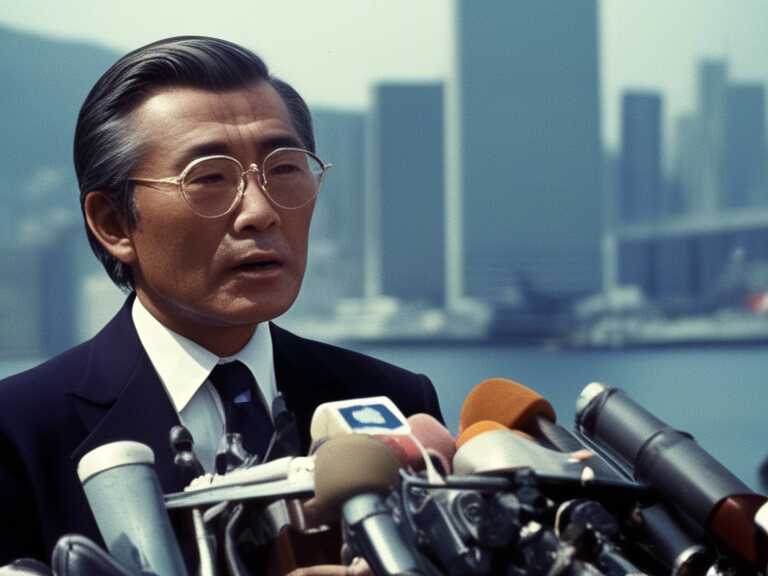
Hong Kong Leader Urges Mutual Respect, Rejects Trump's Involvement in Local Affairs
Hong Kong's leader urged mutual respect with the U.S. amid tensions over Jimmy Lai's trial and Trump's comments on intervention.

On a Tuesday, Hong Kong's top leader issued a stern warning to President-elect Donald Trump after he announced his intentions to intervene in a high-profile legal case involving Jimmy Lai, a pro-democracy activist and media tycoon.
Concerns Over Foreign Interference
Lee, the Chief Executive of Hong Kong, emphasized that he would not tolerate any attempts to mediate in the internal affairs of the semi-autonomous region. His remarks came in response to Trump's assertion that he would personally ensure the freedom of Lai, who is currently on trial for charges related to sedition and collusion with foreign forces under Hong Kong's controversial national security law.
Lai, the former head of the now-defunct pro-democracy tabloid Apple Daily, has pleaded not guilty to the allegations, which are viewed as a significant test of press freedom and judicial independence in Hong Kong. If convicted, Lai could face a life sentence, raising concerns about the erosion of civil liberties in the region.
Seeking Diplomacy over Disruption
In a press conference held in response to Trump's comments, Lee underscored the importance of maintaining mutual respect between Hong Kong and the United States, one of its primary trading partners. He expressed the desire for constructive dialogue rather than political interference that could jeopardize the judiciary and disrupt normal commercial activities in Hong Kong.
Lee's call for respect extended not only to the U.S. but to all nations, urging them to appreciate the autonomy and judicial independence of the Hong Kong Special Administrative Region. His remarks underscore the delicate balance Hong Kong must maintain between preserving its legal framework and navigating international relations.
The Ongoing Trial
The trial of Jimmy Lai, which began in December, is set to resume with Lai taking the stand for the first time as defence arguments commence. Lai, a British national, is facing charges under the national security law for allegedly conspiring with foreign governments to incite sanctions and hostile actions against China and Hong Kong. Additionally, he is accused of publishing 'seditious' materials under a colonial-era law, adding complexity to the already contentious proceedings.
Lai's legal battle comes against the backdrop of a broader crackdown on dissent in Hong Kong. Since the imposition of the national security law in 2020, approximately 300 individuals have been arrested, with Lai emerging as one of the most prominent figures. His case has drawn international attention, highlighting the intersection of politics, media, and law in the region.
Trump's Involvement
Trump's assertions regarding Lai have sparked varied reactions, with some viewing it as a display of 'magical realism foreign policy.' Critics argue that national security matters are not subject to negotiation or deal-making, emphasizing the seriousness with which authorities in Hong Kong view the situation.
International Relations and Economic Implications
Amidst the legal turmoil, Hong Kong's economy and international relations hang in the balance. Any perceived interference by foreign entities in internal matters could have ramifications for Hong Kong's standing in the global arena. Lee's emphasis on fostering normal business exchanges and economic activities with various economies, including the U.S., reflects the region's commitment to maintaining its status as a financial hub.
Furthermore, the Fraser Institute recently ranked Hong Kong as the world's freest economy, a testament to its resilience despite the tumultuous political landscape. However, experts have cautioned against complacency, highlighting signs of declining economic and other freedoms in the region.
Share news















